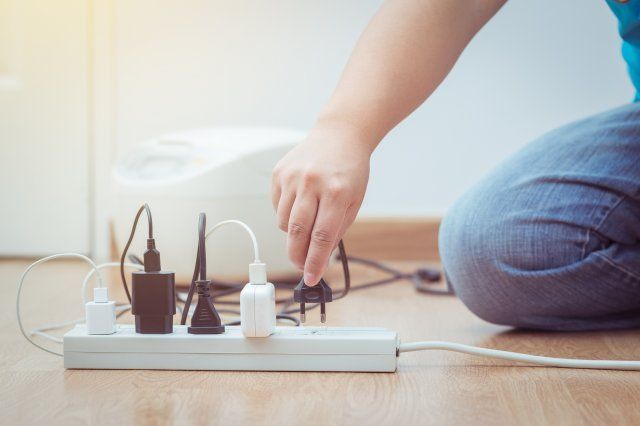Safeguard Your Home With Surge Protection
Modern homes are equipped with many high-tech devices. In addition to the computers, laptops, home entertainment centers, and other electronics, many of the appliances and fixtures in your home have sensitive electronic components as well.
If your idea of surge protection is to plug your computer into a power strip, your home might be vulnerable to dangerous electrical surges that could cause costly damage. A whole-house surge protector should be installed by a trusted electrician to ensure that the delicate electrical circuitry found in appliances and fixtures throughout your home are protected.
Types of Surges
When protecting your home against electrical surges, it helps to know where these surges can come from.
The electrical charge created when lightning strikes is one of the most dangerous types of electrical surge that your home will face. Electricity is transferred from the lightning bolt and into the ground. Any wires leading into your home (including telephone lines or electrical wires) can provide a pathway for the lightning's electricity to infiltrate your home. Exposure to the amount of electricity created by a lightning surge will leave your home's electronic devices inoperable.
Lightning strikes are not that common, so the greater threat to your home's electronics is the electrical surge that can be created by minor power fluctuations in your area. A sudden change in the electrical current flowing into your home can compromise the delicate circuitry found in many modern appliances. You might not notice the damage immediately, but a power fluctuation surge could cause your appliances to fail prematurely.
A whole-house surge protector will prevent both lightning and power fluctuation surges from damaging your home appliances and electronics.
Whole-House Surge Suppression
An experienced electrician can help you safeguard your home against electrical surges by installing a whole-house surge protector. These surge protectors are hard-wired to the electrical service panel that controls each of the circuits within your home.
If the surge protector senses a sudden increase in the electrical current filtering into your home, the excess energy will be captured by the surge protector. This prevents too much electricity from surging through the electronics and appliances in your home and causing irreparable damage to their circuitry.
Many whole-house surge protectors feature thermal fuses that will not melt when exposed to high levels of electricity. It can be helpful to invest in a whole-house surge protector equipped with an alarm that lets you know when a sudden electrical surge has been suppressed. This feature allows you to have your home's electrical system checked by an electrician following a power surge to maximize safety and performance.
Plug-in Surge Protectors
The installation of a whole-house surge protector will eliminate most of the appliance failures associated with electrical surges, but it can be beneficial to install secondary plug-in surge protectors for each electrical device or appliance in your home.
A plug-in surge protector acts as a buffer between the electricity passing through your home's service panel and the sensitive circuitry found in modern appliances and electronics. Should any of the excess electricity produced by a power surge make it past your whole-house surge protector, a plug-in surge protector will provide additional protection against damage for your expensive electronic devices.
Look for plug-in surge protectors that are labeled as uninterruptible power supply devices, as these types of surge protectors will provide a temporary power source if your home loses access to its electrical current during a surge.
Modern homes need to be protected against power surges in order to prevent costly electrical damage. Contact Express Electrical Services to discuss the installation of a whole-house surge protector in your home.

